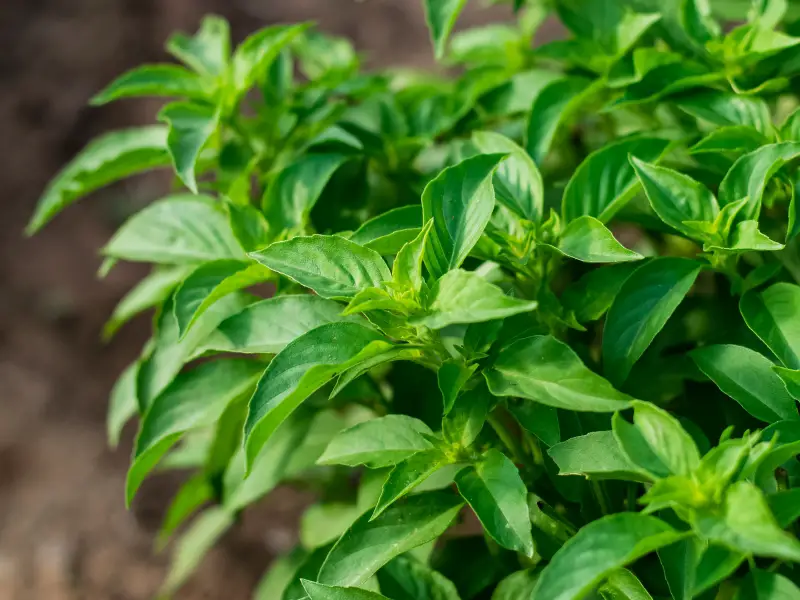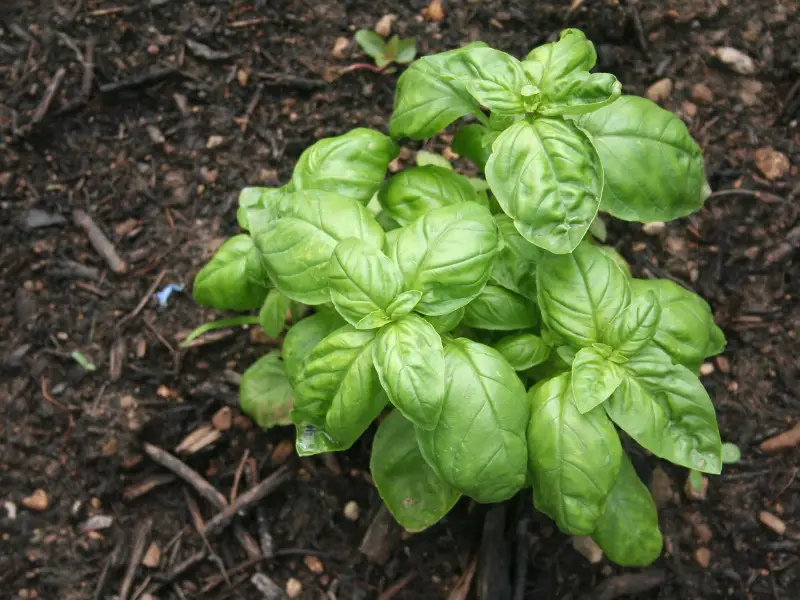Rabbits are herbivores, which means that their diet consists mainly of vegetables and fruits. However, not all plants are safe for rabbits to eat. One plant that many people wonder about is basil. Can rabbits eat basil? The answer is yes, rabbits can eat basil.
Basil is a safe and healthy treat for rabbits. It is low in calories and high in vitamins and minerals, making it a nutritious addition to their diet. However, as with any new food, it is important to introduce basil slowly and in small amounts to avoid digestive issues. Rabbits should also not be given basil that has been treated with pesticides or other chemicals.
In addition to its nutritional benefits, basil can also provide some variety and enrichment to a rabbit’s diet. It can be given fresh or dried and can be added to hay or other vegetables to make mealtime more interesting. Overall, basil is a safe and healthy treat that rabbits can enjoy in moderation as part of a balanced diet.
Can rabbits eat fresh basil?
Basil is a herb that is commonly used in cooking and is popular for its unique flavor and aroma. It is also known for its medicinal properties and is used in traditional medicine to treat various ailments. However, can rabbits eat fresh basil?
The answer is yes, rabbits can eat fresh basil. Basil is a safe and healthy food for rabbits and can be included in their diet in moderation. It is a good source of vitamins and minerals such as vitamin A and potassium, which are essential for a rabbit’s health.
However, it is important to note that basil should not be the main component of a rabbit’s diet. Rabbits require a diet that is high in fiber, and basil does not provide enough fiber to meet their dietary needs. Therefore, basil should only be given to rabbits as a treat or as a supplement to their regular diet.
When feeding fresh basil to rabbits, it is important to wash it thoroughly to remove any dirt or pesticides. It should also be given in small quantities to prevent digestive problems such as diarrhea.
In conclusion, fresh basil is a safe and healthy food for rabbits when given in moderation. It is important to remember that it should only be given as a supplement to a rabbit’s regular diet and should not be the main component of their diet.
Benefits of Feeding Basil to Rabbits

Basil is an aromatic herb that is often used in cooking, but did you know that it can also be beneficial for your pet rabbit? Here are some of the benefits of feeding basil to rabbits:
1. Aids Digestion
Basil contains essential oils that can help stimulate the digestive system and improve gut health. This can be especially beneficial for rabbits who are prone to digestive issues such as bloating and diarrhea.
2. Provides Nutrients
Basil is a rich source of vitamins and minerals, including vitamin K, vitamin A, calcium, and iron. These nutrients are important for maintaining your rabbit’s overall health and well-being.
3. Acts as a Natural Antibiotic
Basil contains natural antimicrobial properties that can help fight off harmful bacteria and viruses in your rabbit’s body. This can be especially useful in preventing and treating infections.
4. Promotes Hydration
Basil is high in water content, which can help keep your rabbit hydrated. This is important for preventing dehydration and maintaining healthy kidney function.
Overall, feeding basil to your rabbit in moderation can provide several health benefits. However, it is important to remember that basil should not be the main staple of your rabbit’s diet and should be given in small amounts as a treat.
Risks of Feeding Too Many Basils to Rabbits
While basil can be a healthy addition to a rabbit’s diet, feeding too much can lead to some risks. Here are some potential problems that can arise from overfeeding rabbits with basil:
Digestive Issues
Feeding too much basil to rabbits can cause digestive problems, such as diarrhea or bloating. This is because basil contains essential oils that can irritate the digestive system when consumed in large quantities.
Nutrient Imbalance
Basil is high in calcium, which is an essential nutrient for rabbits. However, too much calcium can lead to an imbalance in their diet, which can cause health problems such as bladder stones. It is important to ensure that rabbits are getting a balanced diet that includes a variety of vegetables, hay, and fresh water.
Allergic Reactions
Some rabbits may be allergic to basil, which can cause skin irritation or respiratory problems. It is important to monitor rabbits for any signs of allergic reactions when introducing new foods to their diet.
Pesticide Exposure
When feeding rabbits basil, it is important to ensure that the herb is free from pesticides or other harmful chemicals. Rabbits are sensitive to toxins, and exposure to pesticides can cause serious health problems.
Overall, basil can be a healthy addition to a rabbit’s diet when fed in moderation. However, it is important to monitor rabbits for any signs of digestive issues, nutrient imbalances, allergic reactions, or pesticide exposure when introducing new foods to their diet.
How much basil can I give my rabbit?
Basil is a herb that is often used in cooking, and it is also safe for rabbits to eat. However, it is important to give basil to your rabbit in moderation. Too much basil can cause digestive problems for your rabbit, which can be uncomfortable and potentially dangerous.
As a general rule, it is recommended that you give your rabbit no more than a few leaves of basil per day. This should be in addition to their regular diet of hay, fresh vegetables, and pellets. It is important to note that basil should not be the main part of your rabbit’s diet, as they need a variety of foods to stay healthy.
If you are introducing basil to your rabbit’s diet for the first time, it is a good idea to start with a small amount and monitor your rabbit’s reaction. Some rabbits may be more sensitive to new foods than others, and it is important to watch for any signs of digestive upset, such as diarrhea or bloating.
Overall, basil can be a healthy and tasty addition to your rabbit’s diet, as long as it is given in moderation and as part of a balanced diet. If you have any concerns about your rabbit’s diet or health, it is always best to consult with a veterinarian who specializes in rabbit care.
Can Baby Rabbits Eat Basil?
Basil is a popular herb that is used in many cuisines around the world. It is also used in some pet foods, and some pet owners might wonder if it is safe to feed basil to their baby rabbits. In general, rabbits can eat basil, but there are some things that pet owners should keep in mind.
Firstly, it is important to note that baby rabbits have more sensitive digestive systems than adult rabbits. Therefore, it is important to introduce new foods to their diet gradually, in small amounts, and observe how they react to it. Basil is a safe food for rabbits, but it should be given in moderation.
Secondly, it is important to wash the basil thoroughly before feeding it to the baby rabbits. This is to remove any pesticides or chemicals that might be present on the leaves. It is also important to remove any wilted or spoiled leaves, as they can cause digestive problems.
Lastly, basil should not be the main source of food for baby rabbits. It should be given as a treat or supplement to their regular diet of hay, fresh vegetables, and water. A balanced diet is important for the health and well-being of baby rabbits.
In summary, baby rabbits can eat basil, but it should be given in moderation, washed thoroughly, and not be the main source of food.
Related Articles:

